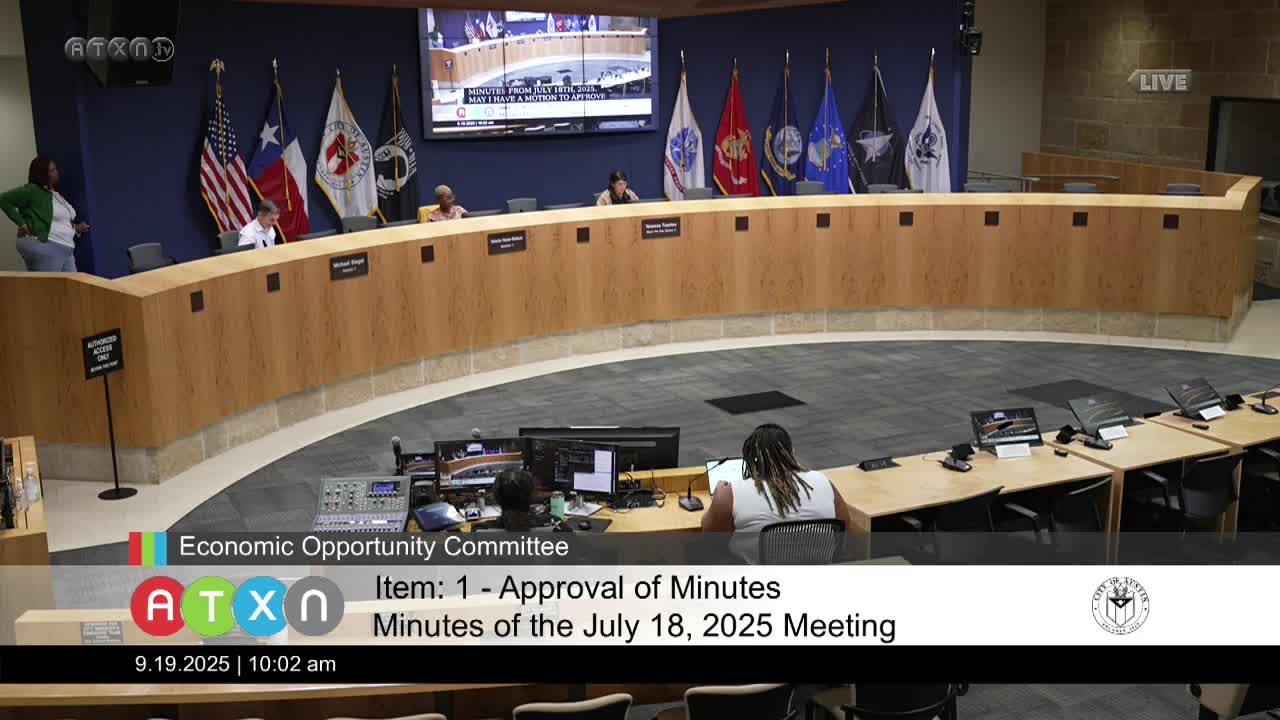Article not found
This article is no longer available. But don't worry—we've gathered other articles that discuss the same topic.
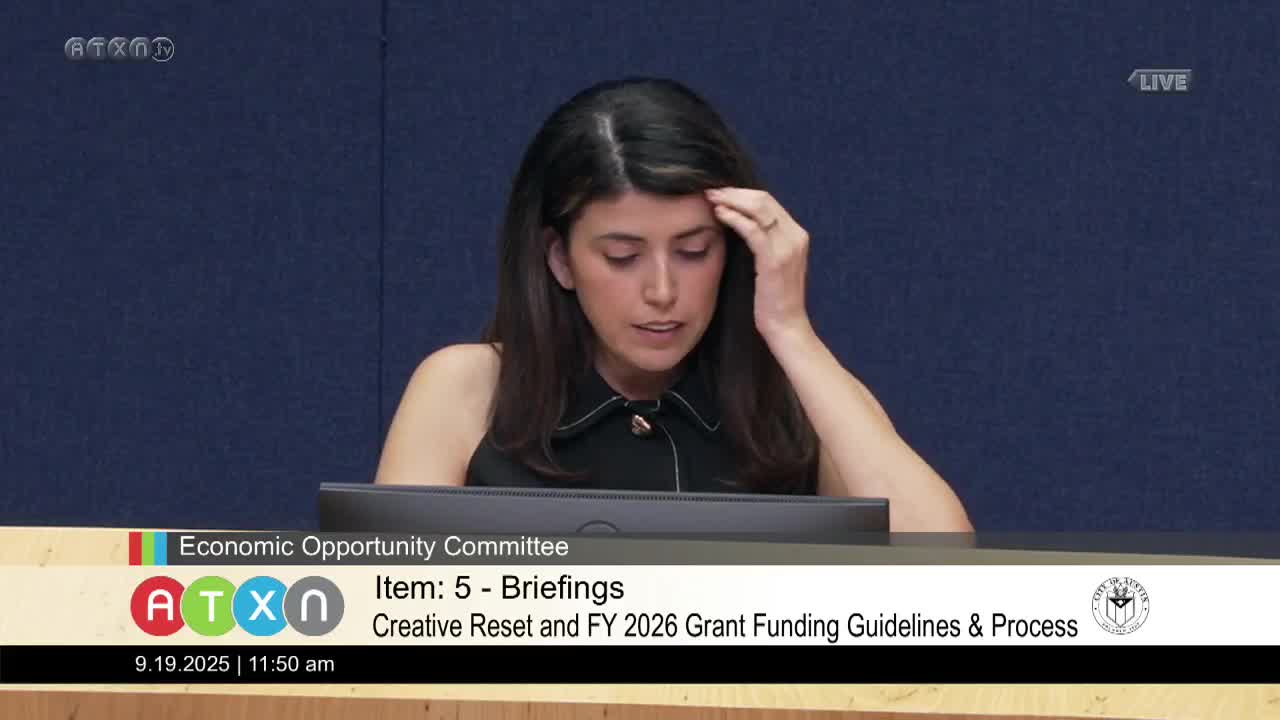
Committee hears brief update on summer youth employment; city, county and private funding alignment raised
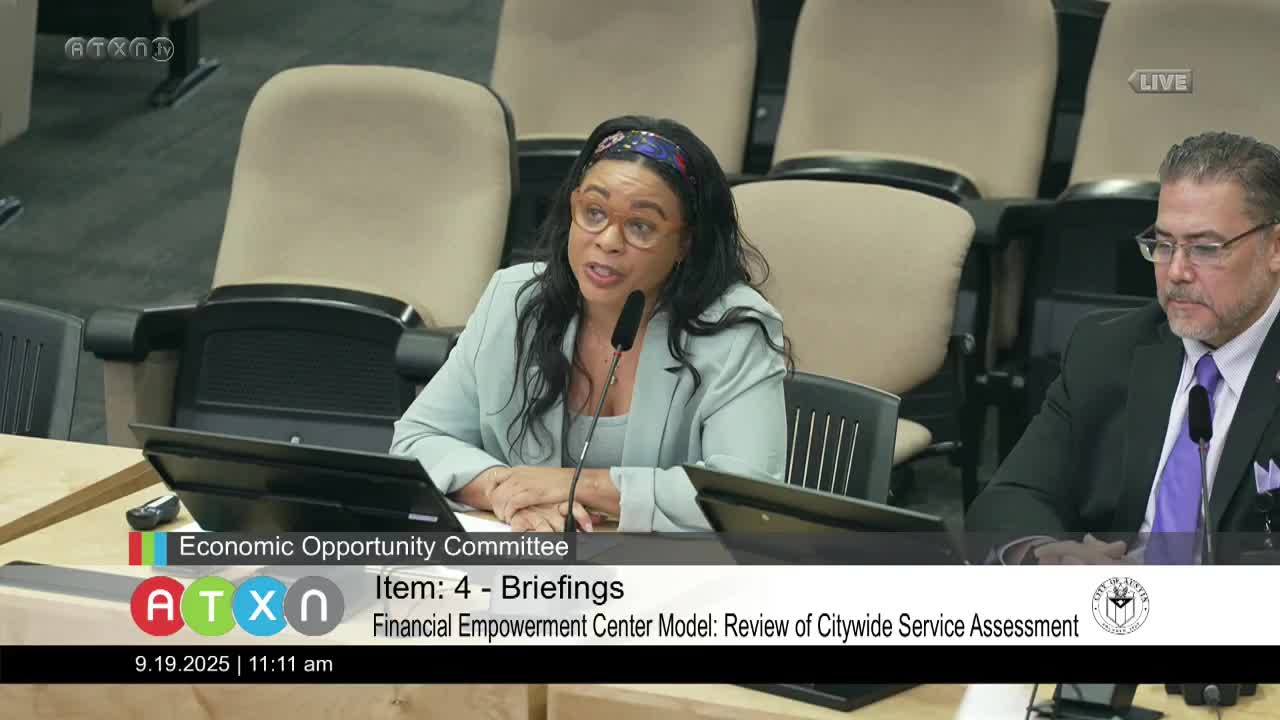
ACME unveils streamlined Creative Reset grant guidelines, opens multiple funding programs this fall
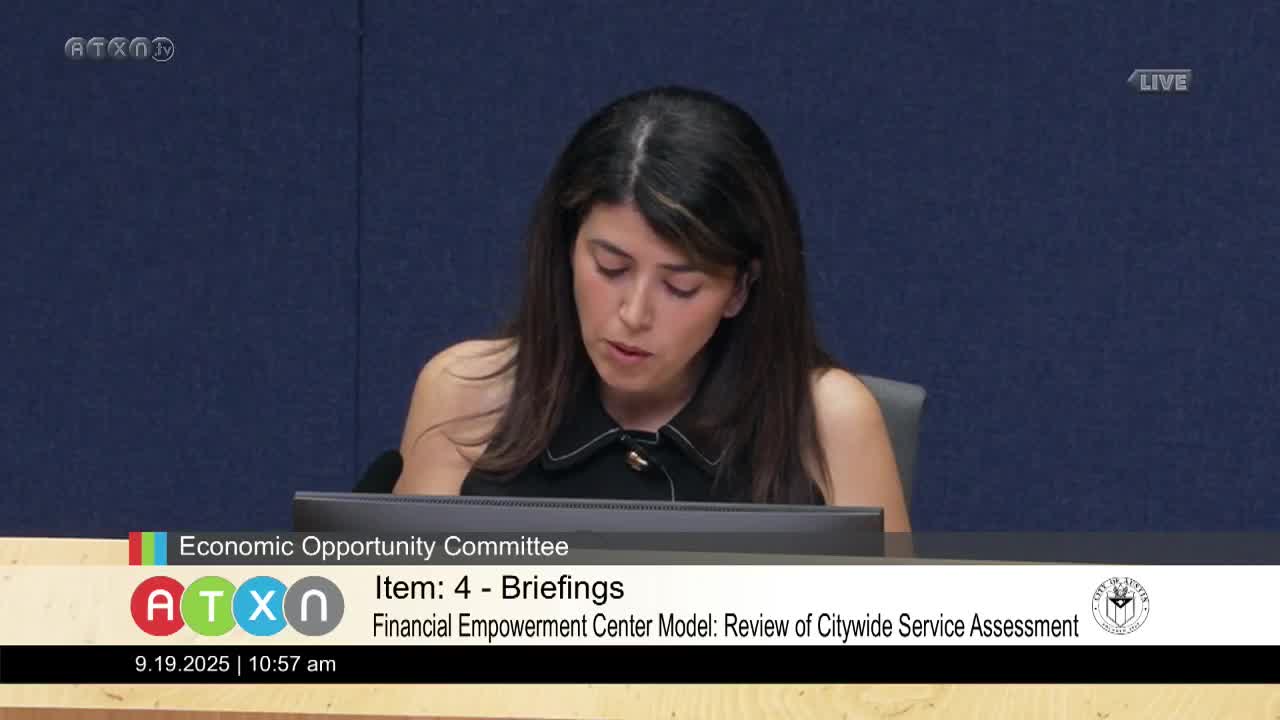
City staff to explore Financial Empowerment Center model; CFE Fund academy and grants described
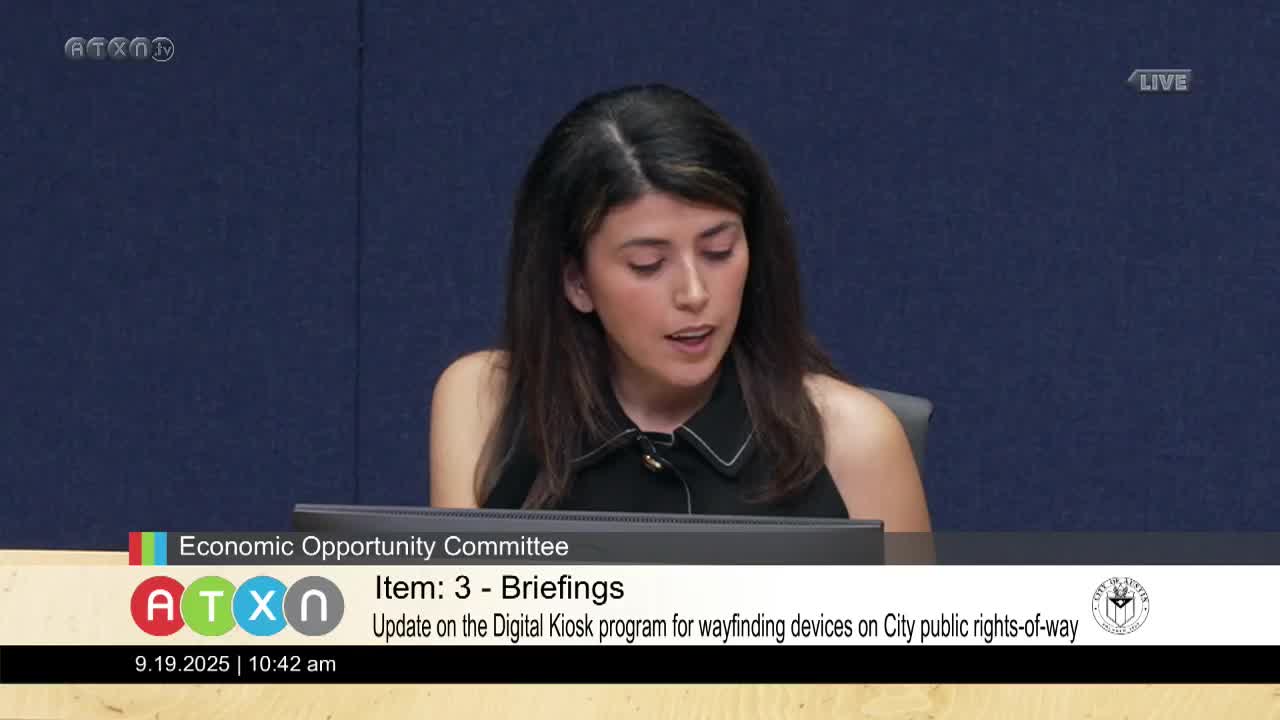
City briefs committee on proposed downtown digital kiosk network, seeks code changes and local office meetings
